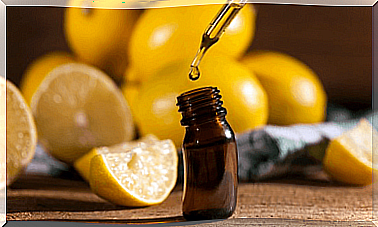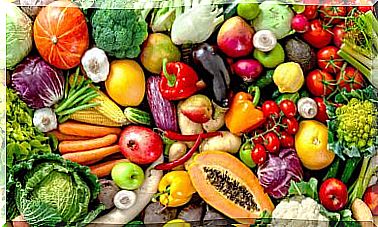8 Natural Ways To Soothe Painful Menstrual Cramps
Many women experience severe and disabling menstrual cramps each month. Through diet, hydration and physical exercise, these pains can be reduced, improving the quality of life.
According to data from various studies, about 40% of women suffer from menstrual cramps during their cycle. These can be so severe that they prevent many of them from carrying out their daily activities normally.
This type of pain is usually due to the production of prostaglandins. These are hormone-like substances, which cause severe uterine contractions.
In most cases, menstrual cramps appear on the day the menstrual period starts or the day before. In addition, this pain can be accompanied by symptoms such as nausea and diarrhea.
There are different pain relievers and medications on the market that can help reduce pain caused by menstrual cramps. However, they are not always effective, since it is also necessary to make some modifications in the habits of life.
Here are 8 natural ways to reduce painful menstrual cramps or cramps.
Vitamin D supplements
If menstrual cramps affect you every month, you may want to consider taking vitamin D supplements. There is evidence that this vitamin can help improve discomfort that occurs before and during menstruation.
Foods rich in calcium and magnesium
Calcium can help improve PMS symptoms. For this reason, the consumption of foods rich in calcium, preferably those of vegetable origin, is beneficial. For example, green leafy vegetables contain iron, calcium, and magnesium,
In addition, it is good to consume a magnesium supplement, since different studies indicate that it decreases during the menstrual period. The deficiency of this mineral can cause water retention, cramps, headaches and an oversensitive nervous system.
Practice yoga
The bow pose in yoga practice can help reduce menstrual cramps.
In this exercise the body exerts pressure on the abdomen, positively stimulating the organs of digestion and reproduction. Therefore, it helps alleviate problems such as constipation and menstrual pain.
This position also helps reduce stress, fatigue, and anxiety. However, it should be avoided in cases of hypertension, recent surgeries or hernia.
To walk
Low-impact exercises, such as walking, can help decrease the severity of menstrual cramps, while stimulating the release of endorphins.
Endorphins help the body deal with depression and physical pain.
Avoid consuming caffeine

Caffeine is a stimulant that causes muscles to contract and cause pain. The consumption of this class of substances should be avoided, especially in the days before the period.
Try to stay well hydrated
Hydration is key to preventing menstrual ailments and cramps. Although it is good to consume at least two liters of water a day, another good option to hydrate yourself and receive an extra benefit is consuming coconut water or pineapple juice.
Coconut water contains calcium, which helps reduce spasms and alleviates stomach problems such as flatulence, diarrhea, and vomiting.
For its part, pineapple juice contains bromelain. This is an enzyme that acts as a natural anti-inflammatory, helping to reduce swelling and pain.
Cinnamon infusion
A good natural remedy to reduce these discomforts is the infusion of cinnamon, as indicated by the tests carried out in this regard.
Additionally, this spice is an excellent source of nutrients such as fiber, calcium, and iron.
Papaya
Although there is no consistent scientific evidence in this regard, it is popularly said that the consumption of papaya before and during the menstrual period can also help reduce cramps and other symptoms of this cycle.
On the other hand, this fruit has very interesting nutritional values, such as its high content of vitamin A, group B vitamins and especially vitamin C.
See also:









